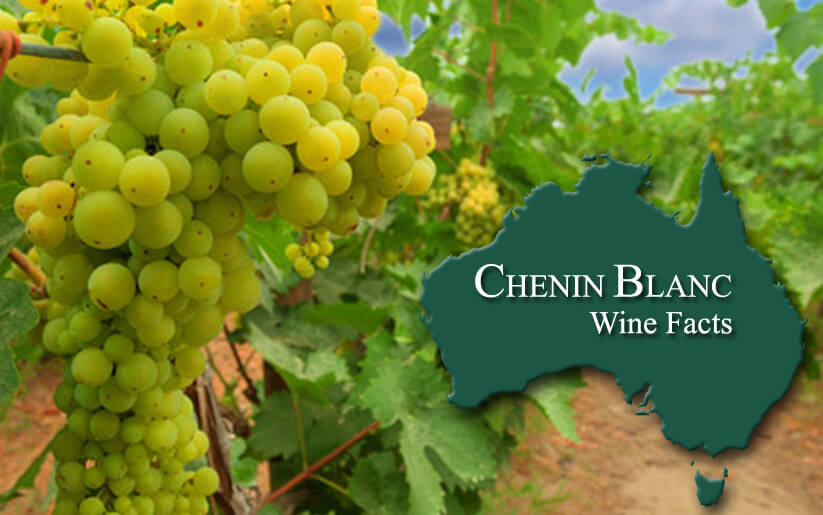Oz Wine Facts – Chenin Blanc Wines
September 05, 2017

Chenin Blanc is a white grape variety that originated in the Loire Valley in France. This grape contains high acidity, allowing winemakers to craft varying styles of wines, ranging from sparkling wines to well-balanced dessert wines. How this grape came to Australia is a mystery, but it is widely believed that it might have been introduced in James Busby’s 1832 collection. By 1862, C. Waterhouse was growing this classic white grape at Highercombe in the small town of Houghton, South Australia.
Below are some statistics that reflect on the growth, production, pricing, and export of Aussie Chenin Blanc grapes as well as wines in the year 2016.
Viticulture
 (source: Wine Australia)
(source: Wine Australia)In 2016, out of a total area of 135,000 ha planted with grapevines, Chenin Blanc grapes were planted on about 410 ha of vineyard land. None of these plantings were new, with the bearing area amounting to a whopping 99.8% as a share of the total growing area.
Grape Production
Aussie winemakers crushed about 1,608,000 tonnes of grapes in the year 2016. The crushing of Chenin Blanc grapes approximated to 6,000 tonnes, with 50% of the grapes being sourced from warm inland regions, and the other half produced in cool climate wine regions of Australia.
Out of the various lush vineyard areas, Swan District came out on top, providing about 35% of the total Chenin Blanc fruit grown. Other wine regions that produced Chenin Blanc are – Riverland (29%), Riverina (13%), Margaret River (11%), and Swan Hill in Victoria (6%).
Export Data
Export values for 2016 were calculated, with China being the highest importer of Australian Chenin Blanc wines (23% of the total wine production). 21% of the wines were exported to Denmark, 17% to the UK, and 5% each to Japan and Belgium.
Of the total exports, the maximum number of wine bottles sold (65%) fall into the price range of $5/L to $7.49/L. 14% of the wines sold lie in the category of $7.50/L to $9.99/L, 13% in $10/L to $19.99/L, 5% in $2.50/L to $4.99/L, and 3% in the $20/L and above category.






 (source: Wine Australia)
(source: Wine Australia)





